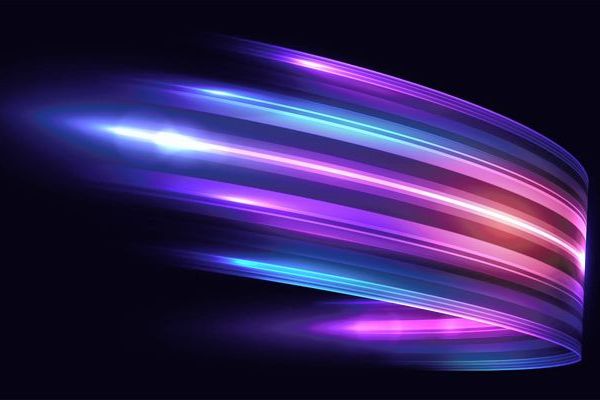Building a Future Ready Workforce for the AI Revolution
The future of AI relies on developing a skilled, diverse, and inclusive workforce. This blog will explore how the UK can build a future-ready talent pool, from primary education through to lifelong learning. We’ll examine strategies for addressing the AI skills gap, including upskilling and reskilling the current workforce to meet the demands of an AI-driven economy.
Introduction
In the rapidly evolving landscape of work, where AI and automation are reshaping industries at unprecedented speed, a concerning pattern is emerging: those already facing disadvantage risk being left even further behind.
Work from IFOW’s Pissarides Review – a major three-year research project into the future of work and wellbeing, funded by the Nuffield Foundation – showed that the impacts of technology adoption are divergent. While new tools such as AI improve dimensions of job quality and quality of life for some, for many others their use in the workplace leads to the erosion of discretion, autonomy, dignity and pay.
For over a decade, the EY Foundation has been working with young people from low-income backgrounds who’ve grown up with fewer opportunities in life, and – recognising important interactions in their respective research - have teamed up with IFOW to address this key challenge: how can we ensure that this period of technological transformation doesn’t further entrench inequalities?
Why Intrinsic Motivation Matters in an AI Economy
Research from IFOW has shown how, as our labour markets transform, the skills most resilient to automation are increasingly human-centric: critical thinking, communication, creativity, and problem-solving. IFOW has identified 3,500 skills that are "core" and growing in importance, with mentions of "initiative and leadership" and "critical thinking" rising significantly in job advertisements since 2016.
These are precisely the capabilities that flourish when young people are intrinsically motivated—when they engage in learning and work for inherent satisfaction rather than external rewards alone.
Yet the evidence indicates a stark reality: while young children generally start with similar levels of intrinsic motivation, this erodes as they age, and this erosion is more acute for children from low-income backgrounds.
That really does matter. Nearly a quarter of young people are eligible for free school meals in the UK. Without intervention, that shows itself as a 29% attainment gap through their schooling, and on into differences in pay too.
What presents as an educational challenge is quietly building to a future of work crisis. Left unattended, our AI future will not capture the diversity and inclusion that is so vital if it is to be a just transition. It will also miss out on the incredible talent and creativity latent in so many of these young people.
Yet there is a key gap in work being done in this area.
Studies have focused on the impacts of growing up with disadvantages, and research has been done into motivation structures. IFOW’s own work has focused on technological transformation and its impact on labour markets. What we have identified is a gap at this intersection:
It is one that needs urgent attention. Around 1 in 8 young people are now ‘NEET’ – not in education, employment or training - and with automation often being rolled out in ways that diminish job quality, or even numbers of jobs available, there is a risk that these numbers will increase, adding to the growth and productivity issues that have plagued our economy.
Yet our initial work reveals that intervening on motivation can have dramatic effects. In one study, there was a 70% chance that someone who’d been through a programme on motivation would see better work outcomes than someone who had not.
How we are approaching this work
Following a comprehensive literature review, workshops have been carried out with young people from the target demographic in schools, colleges and employment support groups in Birmingham, Manchester, Cornwall, Bournemouth and Preston. The session has been designed to interrogate their ideas about the future of work, how they see technology within that, and then – through a number of written exercises and a questionnaire, surface their motivation structures.
The results of this are then being analysed, and findings shared with an expert stakeholder group, all of which is building towards the design and piloting of a school-based intervention that will shift the needle on intrinsic motivation and self-agency, and help young people begin to reflect on their own future of work.
There is a pressing need for strategies and interventions that support more equitable transitions into work, through these kind of evidence-based interventions that develop people’s capabilities and agency.
Through this partnership, EYF and IFOW have the potential to both substantially expand the evidence base on this topic in a way that has broad systemic impact, and design and test interventions that will have direct positive impact on young people.
Building Motivation That Lasts
Through the work, are looking to identify key principles for effective motivation-building interventions. Areas of interest are around creative autonomy-supportive environments, helping young people connect to meaningful goals and experiences of mastery, and supporting reflection and integration too.
Traditional career guidance often falls short by focusing solely on information provision or talking up extrinsic rewards – “these jobs pay really well”. Our emerging framework instead emphasises identity, values, and purpose - elements that help young people develop the self-agency and intrinsic motivation needed to be resilient through technological change.
Building ambition for systemic change
The goal of this partnership isn’t intervention at the individual level. The ambition is change at a system level. Through a multi-level approach, we are targeting individual outcomes, but also school-level career support and national policy frameworks to improve careers guidance based on this motivation research.
For young people from low-income backgrounds to thrive in an AI-driven economy, they need more than technical skills—they need the intrinsic motivation and self-agency to adapt, learn continuously, and shape technological futures. By addressing these foundational elements, we can ensure that the AI revolution becomes a force for greater opportunity, not deeper inequality.
If you would like to hear more about the work, and find out how you could contribute to it, please contact [email protected]
techUK - Seizing the AI Opportunity
The UK is a global leader in AI innovation, development and adoption.
AI has the potential to boost UK GDP by £550 billion by 2035, making adoption an urgent economic priority. techUK and our members are committed to working with the Government to turn the AI Opportunities Action Plan into reality. Together we can ensure the UK seizes the opportunities presented by AI technology and continues to be a world leader in AI development.
Get involved: techUK runs a busy calendar of activities including events, reports, and insights to demonstrate some of the most significant AI opportunities for the UK. Our AI Hub is where you will find details of all upcoming activity. We also send a monthly AI newsletter which you can subscribe to here.
Upcoming AI Events
Latest news and insights
Subscribe to our AI newsletter
AI and Data Analytics updates
Sign-up to our monthly newsletter to get the latest updates and opportunities from our AI and Data Analytics Programme straight to your inbox.
Contact the team
Visit our AI Hub - the home of all our AI content:

Enquire about membership:












